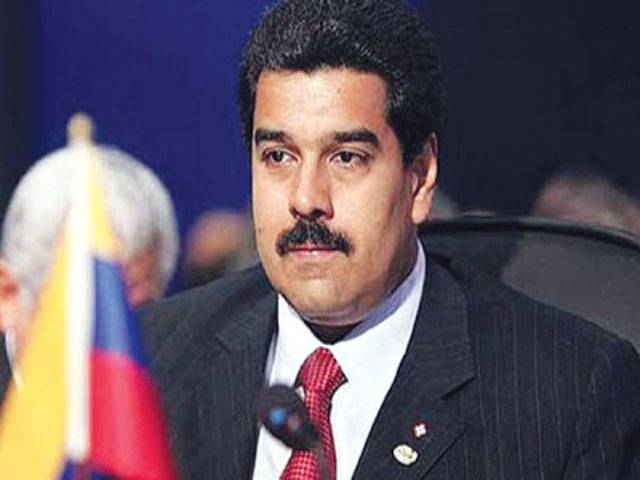CARACAS : Venezuelan President Nicolas Maduro sought to hold a “peace conference” on Wednesday in an attempt to end three weeks of at times deadly anti-government protests in the oil-rich but deeply divided country.
But the main opposition leader Henrique Capriles is not attending, saying he is tired of what he calls government lies and police repression against students protesters.
Capriles, a state governor, was narrowly defeated by Maduro in elections 11 months ago to succeed the late Hugo Chavez.
Maduro’s gathering aims to bring together political, social and religious figures but he has given no details over who has committed to taking part.
The protests have left at least 14 people dead and raised alarm in South America, the US and Europe.
The country with the world’s largest proven oil reserves has been rocked since February 4 by protests over rampant crime, runaway inflation, corruption and other woes.
And on Tuesday, the United States announced the tit-for-tat expulsions of three Venezuelan diplomats.
The US action, which answered Venezuela’s expulsions of three American diplomats a week ago, came a day after Maduro said his government would name a new ambassador to Washington.
The State Department said the Venezuelans would have 48 hours to leave and that Caracas needed to “show seriousness” in order for the relationship between the two countries to move forward.
The atmosphere in Caracas was calmer on Tuesday after a night of sporadic clashes, although in some middle class neighborhoods streets were still partially blocked by barriers of rubble and garbage.
Small groups of student protesters also marched towards the Cuban embassy, another target of opposition ire.
“Venezuelans who don’t protest, don’t get out of this. Join us,” read one of their banners.
But by midday just dozens of people had joined the rally, suggesting an easing up of pressure on the eve of the national dialogue convened by Maduro.
Maduro invited “all social, political, union and religious groups” to take part in the “national peace conference,” although he provided few details.
The Venezuelan leader, Chavez’s handpicked successor, also said he would ask the National Assembly to form a Truth Commission to look into the protests, which he claims are an attempt to “justify foreign intervention in Venezuela.”
Maduro, who sees the protests as a coup d’etat in the making, last week kicked out three US diplomats who he said had met with student protest leaders.
But he said he would name a new ambassador because “Americans think we are killing each other” and he wants to improve dialogue with the US.
The two countries have not exchanged ambassadors since 2010, reflecting the bad blood that has prevailed between the two trade partners since Chavez came to power in 1999.
State Department spokeswoman Jen Psaki said Washington had seen reports about Maduro’s intention.
“But Venezuela also needs to show seriousness for us to be able to move forward. And recent actions, including expelling three of our diplomats, continue to make that difficult.”
Friday, April 19, 2024
Venezuelan leader seeks peace meeting

Caption: Venezuelan leader seeks peace meeting
8:27 AM | April 19, 2024
8:09 AM | April 19, 2024
Minister advocates for IT growth with public-private collaboration
9:57 PM | April 19, 2024
Formula 1 returns to China for Round 5
9:05 PM | April 19, 2024
Germany head coach Julian Nagelsmann extends contract till 2026 World Cup
9:00 PM | April 19, 2024
IMF urges Italy, France to spend less, Germany to loosen purse strings
8:57 PM | April 19, 2024
Empowering Women: The Vision of Maryam Nawaz Sharif
8:37 PM | April 19, 2024
A Tense Neighbourhood
April 19, 2024
Dubai Underwater
April 19, 2024
X Debate Continues
April 19, 2024
Hepatitis Challenge
April 18, 2024
IMF Predictions
April 18, 2024
Kite tragedy
April 19, 2024
Discipline dilemma
April 19, 2024
Urgent plea
April 19, 2024
Justice denied
April 18, 2024
AI dilemmas unveiled
April 18, 2024
ePaper - Nawaiwaqt
Advertisement
Nawaiwaqt Group | Copyright © 2024





